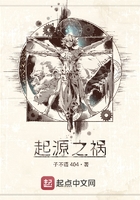The indications furnished by this part of Roman TestamentaryLaw are of a very different kind. It is remarkable that a Willnever seems to have been regarded by the Romans as a means ofdisinheriting a Family, or of effecting the unequal distributionof a patrimony. The rules of law preventing its being turned tosuch a purpose, increase in number and stringency as thejurisprudence unfolds itself; and these rules corresponddoubtless with the abiding sentiment of Roman society, asdistinguished from occasional variations of feeLing inindividuals. It would rather seem as if the Testamentary Powerwere chiefly vaLued for the assistance it gave in makingprovision for a Family, and in dividing the inheritance moreevenly and fairly than the Law of Intestate Succession would havedivided it. If this be the true reading of the general sentimenton the point, it explains to some extent the singular horror ofIntestacy which always characterised the Roman. No evil seems tohave been considered a heavier visitation than the forfeiture ofTestamentary privileges; no curse appears to have been bittererthan that which imprecated on an enemy that he might die withouta Will. The feeling has no counterpart, or none that is easilyrecognisable, in the forms of opinion which exist at the presentday. All men at all times will doubtless prefer chalking out thedestination of their substance to having that office performedfor them by the law; but the Roman passion for Testacy isdistinguished from the mere desire to indulge caprice by itsintensity; and it has of course nothing whatever in common withthat pride of family, exclusively the creation of feudalism,which accumulates one description of property in the hands of asingle representative. It is probable, a priori, that it wassomething in the rules of Intestate Succession which caused thisvehement preference for the distribution of property under aTestament over its distribution by law. The difficulty, however,is, that on glancing at the Roman Law of Intestate Succession, inthe form which it wore for many centuries before Justinian shapedit into that scheme of inheritance which has been almostuniversally adopted by modern lawgivers, it by no means strikesone as remarkably unreasonable or inequitable. On the contrary,the distribution it prescribes is so fair and rational, anddiffers so Little from that with which modern society has beengenerally contented, that no reason suggests itself why it shouldhave been regarded with extraordinary distaste, especially undera jurisprudence which pared down to a narrow compass thetestamentary privileges of persons who had children to providefor. We should rather have expected that, as in France at thismoment, the heads of families would generally save themselves thetroubLe of executing a Will, and allow the Law to do as itpleased with their assets. I think, however, if we look a littleclosely at the pre-Justinianean scale of Intestate Succession, weshall discover the key to the mystery. The texture of the lawconsists of two distinct parts. One department of rules comesfrom the Jus Civile, the Common-Law of Rome; the other from theEdict of the Praetor. The Civil Law, as I have already stated foranother purpose, calLs to the inheritance only three orders ofsuccessors in their turn; the Unemancipated children, the nearestclass of Agnatic kindred, and the Gentiles. Between these threeorders, the Praetor interpolates various classes of relatives, ofwhom the Civil Law took no notice whatever. Ultimately, thecombination of the Edict and of the Civil Law forms a table ofsuccession not materially different from that which has descendedto the generality of modern codes.
The point for recollection is that there must anciently havebeen a time at which the rules of the Civil Law determined thescheme of Intestate Succession exclusively, and at which thearrangements of the Edict were non-existent, or not consistentlycarried out. We cannot doubt that, in its infancy, the Praetorianjurisprudence had to contend with formidable obstructions, and itis more than probable that, long after popular sentiment andlegal opinion had acquiesced in it, the modifications which itperiodically introduced were governed by no certain principles,and fluctuated with the varying bias of successive magistrates.
The rules of Intestate Succession, which the Romans must at thisperiod have practised, account, I think -- and more than account-- for that vehement distaste for an Intestacy to which Romansociety during so many ages remained constant. The order ofsuccession was this : on the death of a citizen, having no willor no valid will, his Unemancipated children became his Heirs.















